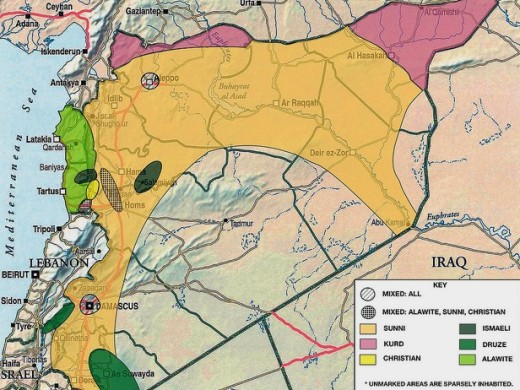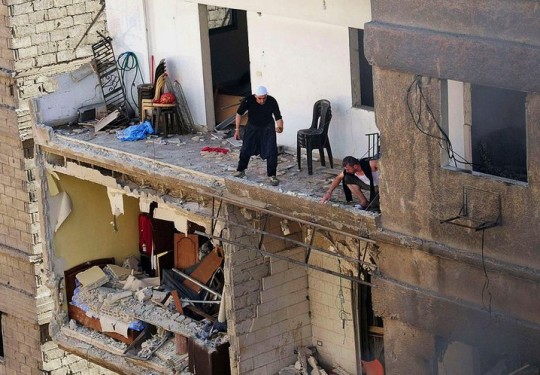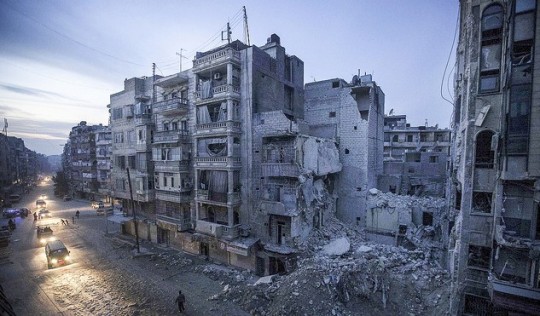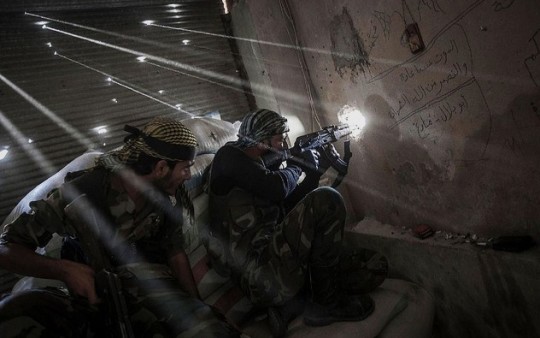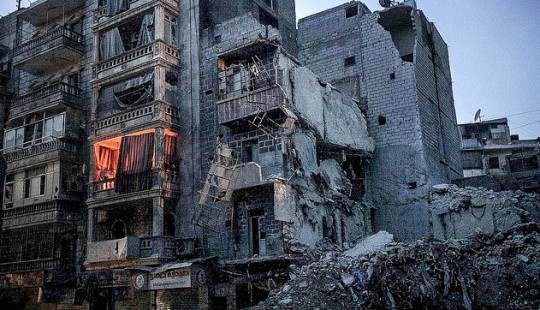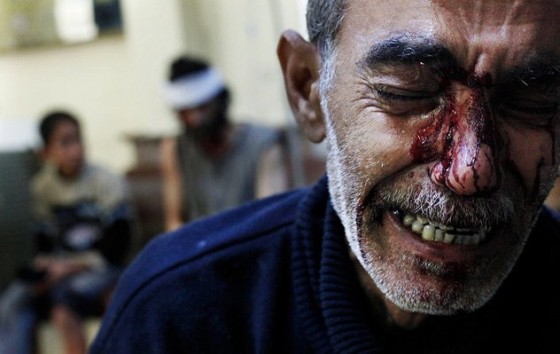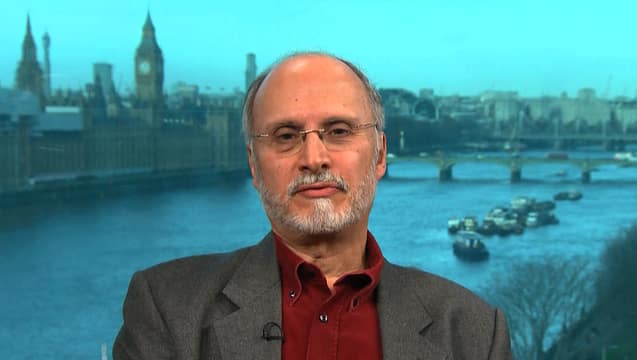Open Letter to Rex Tillerson
Dispatches from Deena Stryker
Dear Mr. Secretary:
As a former State Department political appointee who drew President Jimmy Carter’s attention to important aspects of the Cuban Revolution, I hope you will share with National Security Advisor Michael Flynn and the other members of the Trump cabinet the fact that Russia has long enjoyed close relations with Iran, and that there are important reasons for this.
Understanding these reasons starts with knowing the difference between Sunnis, who seek to impose a medieval, top-down version of Islam through jihad, and Shia, who are historical defenders of the dispossessed and favor peace. The Shia revere Ali, the prophet’s designated successor, because he defended the poor, while his opponent, who had him killed, represented the merchant class which still today is mostly Sunni. Since the seventh century, Shiism has been more popular among the lower Arab classes, culminating in the 1979 Iranian revolution. The revolution’s principal ideologue was Ali Shariati, a friend of left-wing writer and philosopher Jean-Paul Sartre, who is reported to have said that had he believed in God, he would be a Muslim.
Shariati argued that a good society would conform to Islamic values, and that the role of government was to guide society in the best possible manner rather than to manage it. Ignorant of these facts, American political actors and journalists claim that Shia Iran supports terrorism, when in fact, Islamic terrorism seeks to advance a rigid Sunni tradition. Politicians and journalists who use Iran’s backing of Hezbollah to claim that it supports terrorism ignore that Hassan Nasrallah, the leader of the military arm of Lebanon’s left, is a political and religious theoretician who endeavors to implement Shariati’s vision. Lebanon’s Hezbollah supports the Palestinian cause, as does Shiite Bashar al-Assad, whose country is known as the ‘frontline state’ because it borders on Israel.
While India, Pakistan and Israel have nuclear capabilities, Iran is denied that right — whether because it had a revolution or because its system of government operates under religious law is never made clear. Although it has respected the strict limitations on its nuclear research set out by the Western P + 5 and Russia, minutes after being sworn in to office, US President Donald Trump announced that his administration would develop a “state of the art” missile defense system to protect Americans against attacks from North Korea and Iran. Reports of the launch of a test missile by Iran a few days later made no mention of that provocation.
The new US president needs to understand that it cannot have better relations with Russia while threatening Iran. Slapping sanctions on Iran for testing a missile, as Trump did without missing a beat, may be a gesture toward Israel in order to be able to lean on Netanyahu over new settlement construction; but Iran has never waged war on its neighbors except when provoked (as in the eight year conflict initiated by Iraq in the nineteen-eighties and supported by a US eager to defeat the Revolutionary regime). Iran’s efforts to overcome the historical enmity between Islam’s Shia and Sunni regimes that roils the Middle East, are far from being reciprocated by the most powerful Sunni government and US ally, Saudi Arabia. With US support, it is waging a devastating air campaign against its tiny neighbor, Yemen, one of the poorest countries on the planet, because Shia Houthis vying for power there could supposedly pose a threat to the Sunni monarchy.
Cooperation between Russia and the US to defeat ISIS, the Sunni so-called Caliphate, cannot flourish if the US fails to welcome the Shiites in that struggle. To do that, it could be helpful for Americans to know how Vladimir Putin interacts with Russia’s Muslim neighbors. As I wrote in ISIS in US-Russia crosshairswww.greanvillepost.com/?s=Deena+Stryker “Not only did Putin win the peace with the Chechens, he has adopted policies vis-a-vis his country’s Islamic neighbors which are very different from those the US implemented in its attempt to dominate the Middle East — or those implemented by the United States after the Civil War, when ‘reconstruction’ was a myth that led to officially sanctioned segregation and a struggle for equality that is yet to be won. Russia contributed generously to Chechen reconstruction, favoring a modernization that supports tradition, refusing to throw the historical, as well as the socialist baby, out with the bathwater.”
Beyond theology, the crux of the Sunni-Shia divide is whether Iran or Saudi Arabia will be the preeminent power in the Middle East. Russian-Iranian relations have varied over time, but Western economic sanctions on Iran led to Russia becoming a key trading partner and made Iran the only country in Western Asia invited to join the Collective Security Treaty Organization, President Putin’s response to NATO’s encroachment.
As perhaps the world’s foremost petroleum executive, you know that relations between Russia and Iran go beyond their shared existence as oil producers. With so many urgent tasks ahead, I hope you can prevail upon the Trump Administration to pursue a seamless shift away from Saudi Arabia, that supports its number one enemy, ISIS, and recognize Iran as the leading Middle East power, whose efforts will be directed toward a vital process of healing.
—Deena Stryker
Senior Contributing Editor
The Greanville Post
DEENA STRYKER, Senior Contributing Editor
 Born in Philadelphia, Stryker spent most of her adolescent and adult years in Europe, resulting over time in several unique books, her latest being
Born in Philadelphia, Stryker spent most of her adolescent and adult years in Europe, resulting over time in several unique books, her latest being
CUBA: Diary of a Revolution, Inside the Cuban Revolution with Fidel, Raul, Che, and Celia Sanchez
America Revealed to a Honey-Colored World
A Taoist Politics: The Case For Sacredness
She began her journalistic career at the French News Agency in Rome, spent two years in Cuba finding out whether the Barbados were Communists before they made the revolution (‘Cuba 1964: When the Revolution was Young’). After spending half a decade in Eastern Europe, and a decade in the U.S., studying Global Survival and writing speeches in the Carter State Department, she wrote the only book that foresaw the fall of the Berlin Wall AND the dissolution of the Soviet Union (“Une autre Europe, un autre Monde’). Her memoir, ‘Lunch with Fellini, Dinner with Fidel’, tells it all. ‘A Taoist Politics: The Case for Sacredness’, which examines the similarities between ancient wisdom and modern science and what this implies for political activism; and ‘America Revealed to a Honey-Colored World” is a pamphlet about how the U.S. came down from the City on a Hill’.
MAIN IMAGE: R. Tillerson, new chief at Foggy Bottom.
Note to Commenters
Due to severe hacking attacks in the recent past that brought our site down for up to 11 days with considerable loss of circulation, we exercise extreme caution in the comments we publish, as the comment box has been one of the main arteries to inject malicious code. Because of that comments may not appear immediately, but rest assured that if you are a legitimate commenter your opinion will be published within 24 hours. If your comment fails to appear, and you wish to reach us directly, send us a mail at: editor@greanvillepost.com
We apologize for this inconvenience.
 What will it take to bring America to live according to its own propaganda?
What will it take to bring America to live according to its own propaganda?
=SUBSCRIBE TODAY! NOTHING TO LOSE, EVERYTHING TO GAIN.=
free • safe • invaluable
Please see our red registration box at the bottom of this page
REMEMBER: ALL CAPTIONS AND PULL-QUOTES BY THE EDITORS, NOT THE AUTHORS.
For media inquiries contact us at greanville@gmail.com




